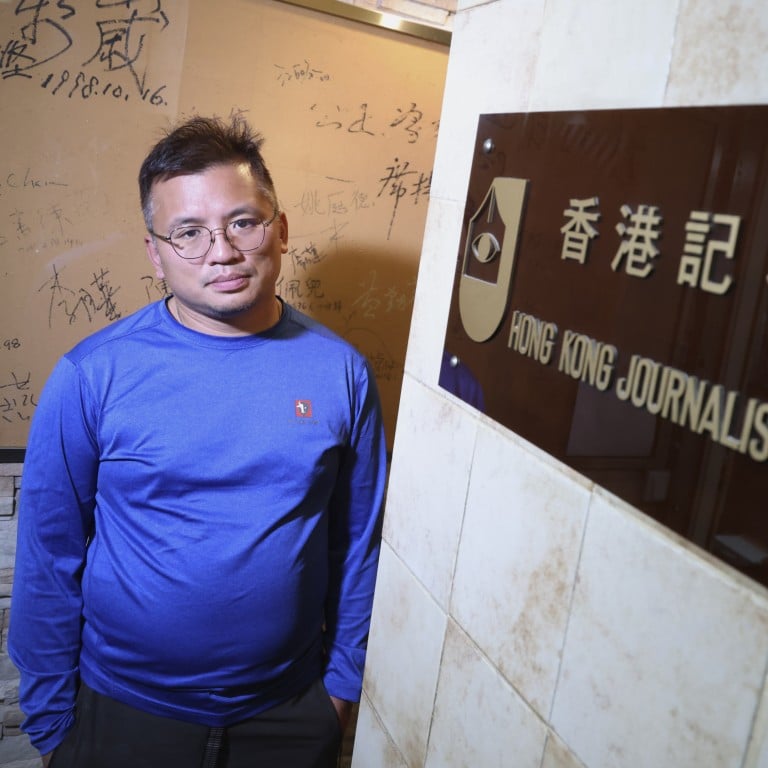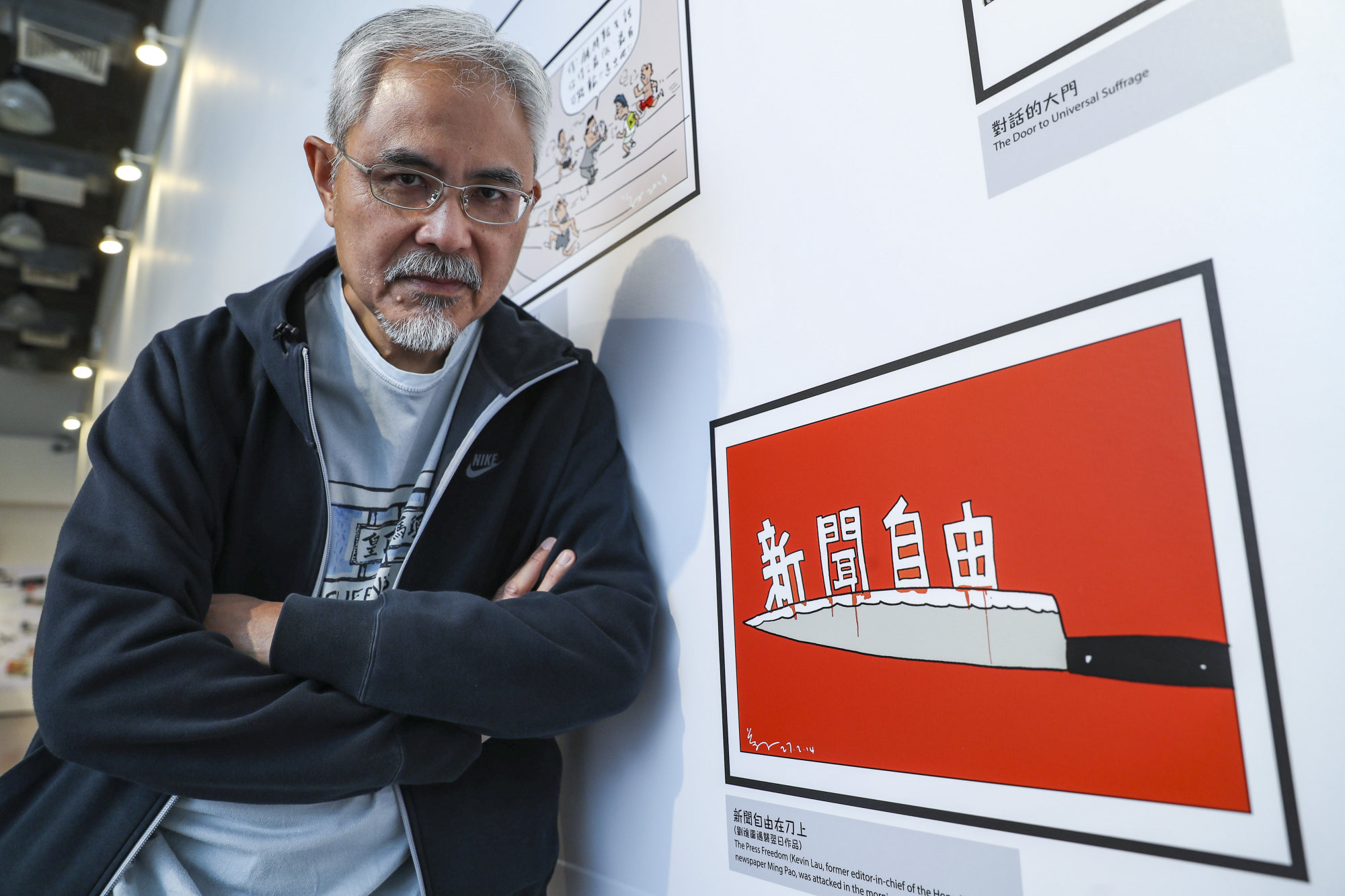
Hong Kong’s largest journalist group faces financial strain, plunging membership as outlets close and reporters leave, re-elected chairman says
- Ronson Chan, re-elected chairman of Hong Kong Journalists Association, issues warning over group’s survival after annual general meeting
- Group counts about 220 full members currently, with total including other categories reaching between 300 and 400
Hong Kong’s largest association of journalists is struggling with financial difficulties and plunging membership as media outlets close and reporters leave the industry or city entirely, its re-elected chairman has said, issuing a warning over the group’s survival.
Ronson Chan Ron-sing, who was re-elected as chairman of the Hong Kong Journalists Association (HKJA) at the group’s annual general meeting on Saturday, said that only about 220 full members remained, while the total including other categories was between 300 and 400.
He cited news organisations of different sizes shutting down, journalists changing jobs or leaving the city and students opting not to join the industry after graduation as some of the reasons for the poor figures.
Hong Kong police slam journalist body for ‘unverified speculation’ in statement
“Our number of members is far fewer than that of three years ago, which has had a huge impact on us,” he explained after the association’s meeting, where a new executive committee was elected. The group also faced financial difficulties, he said.
Chan in 2021 said that the group had more than 600 members.
During Saturday’s meeting, the association increased its total number of executive committee members from seven to nine.

Separately, the Foreign Correspondents’ Club (FCC) in Hong Kong expressed concerns over the cancellation of the cartoons by Zunzi, whose real name is Wong Kei-kwan, in a statement issued by its new leadership.
“The FCC notes that the decision to stop publishing Wong’s cartoons is a further blow to press freedom in Hong Kong,” the club said.
“The FCC supports the right of media professionals to continue to enjoy those freedoms under the laws of Hong Kong,” it said, adding that the club had reached out to Ming Pao over its decision.
The newspaper axed the series by Zunzi in May without giving an explanation. The decision ended his 40 years of contributions to the publication. His two daily cartoons were known for blending humour with current affairs criticism.
Journalist not given benefit of doubt in Hong Kong vehicle check case: judge
Several senior government officials, including Secretary for Security Chris Tang Ping-keung and the Secretary for Home and Youth Affairs Alice Mak Mei-kuen, had hit out at the cartoons.
The FCC last month elected its new board of governors, with Lee Williamson, regional head of Gen.T, a platform under lifestyle magazine Tatler, taking on the role of president. He replaced Keith Richburg, director of the Journalism and Media Studies Centre at the University of Hong Kong.

